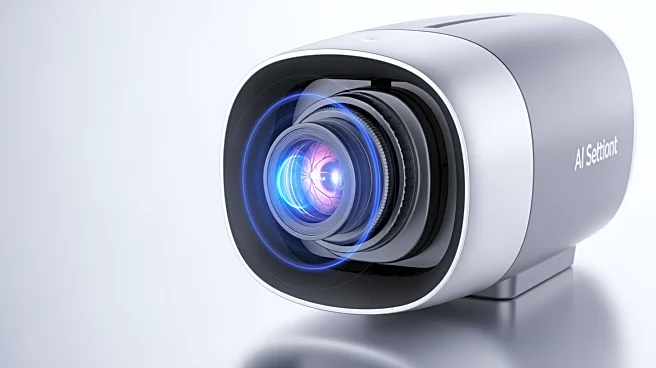What's Happening?
A new AI-powered device has been developed to improve the diagnosis of eye diseases through real-time analysis of fundus images. The device integrates high-resolution image capture with deep learning algorithms to identify conditions such as diabetic
retinopathy, glaucoma, and age-related macular degeneration. Utilizing a Raspberry Pi compute module, the system captures and processes images using advanced techniques like SIFT for image stitching and EfficientNet-B0 for disease classification. The device offers connectivity options for remote diagnostics and cloud storage, enhancing accessibility and efficiency in medical examinations.
Why It's Important?
This development is significant as it addresses the need for efficient, real-time diagnostic tools in ophthalmology, potentially reducing the time and cost associated with traditional methods. By integrating hardware and software into a single portable device, it facilitates point-of-care diagnostics, which can lead to earlier detection and treatment of eye diseases. The AI-driven approach ensures high accuracy and reliability, which is crucial for improving patient outcomes and preventing blindness. The device's ability to operate in resource-constrained environments makes it particularly valuable for remote or underserved areas.
What's Next?
The deployment of this device in clinical settings could revolutionize eye care by providing quick and accurate diagnostics. As the technology is refined, it may be integrated into broader healthcare systems, offering a scalable solution for eye disease screening. Future developments could include expanding the range of detectable conditions and enhancing connectivity features for seamless integration with electronic health records. Stakeholders such as healthcare providers and technology developers are likely to explore partnerships to further enhance the device's capabilities and reach.
Beyond the Headlines
The ethical implications of AI in healthcare, particularly in diagnostics, are profound. Ensuring data privacy and accuracy in AI-driven diagnostics is crucial to maintaining patient trust and safety. Additionally, the device's ability to democratize access to eye care highlights the potential for AI to address healthcare disparities. Long-term, this technology could lead to shifts in how eye care is delivered, emphasizing preventive measures and personalized treatment plans.















